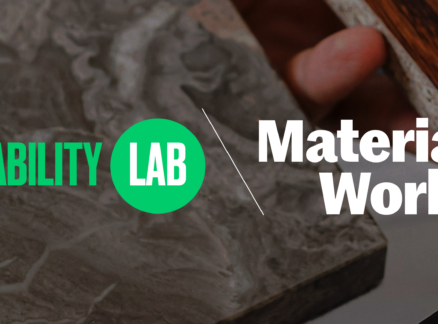March 1, 2004
Eco-Fest Shows Sustainability Is an Everyday Choice
As someone who brings crinkled old plastic bags to the grocery store, I have been perplexed by environmental activists who don’t bother to recycle and by Earth Day celebrations that leave seas of trash in their wake. Such inconsistencies result, at worst, from lazy hypocrisy and, at best, from a belief that focusing on the […]
As someone who brings crinkled old plastic bags to the grocery store, I have been perplexed by environmental activists who don’t bother to recycle and by Earth Day celebrations that leave seas of trash in their wake. Such inconsistencies result, at worst, from lazy hypocrisy and, at best, from a belief that focusing on the micro distracts from larger, more systemic problems.
Fortunately, the organizers of Renewable Brooklyn share my confusion. On Oct. 4, the group hosted its inaugural benefit concert and event in New York’s Prospect Park. The aim was to show urbanites how to make sustainable choices on every level; to prove it was possible, the event demonstrated a full range of ecologically sound principles, from the use of alternative energy and earth-friendly materials to favoring local providers and organic refreshments.
The day was centered around a concert held in the park’s band shell that featured such bands and DJs as Out Hud and the Handsome Boys Modeling Club; the amount of electricity used to put on the show was then added back to the electrical grid via non-polluting, wind-power sources. In the nearby Historic Tennis House, an exhibition called Sustain displayed eco-themed art, in which the content and form were similarly harmonized: For example, “Paved Paradise,” by Stash, depicted a colorful tree painted with water-based, non-toxic ink on found metal. In and around the same building, Future Ec(h)oes, a design and technology exhibition, showcased lamps made from aluminum cans, chairs constructed from old tires, and tables fashioned from recycled garden hose, glass, and water sprockets.
The largely organic refreshments were provided by local merchants. Hometown favorites Brooklyn Brewery produced an organic batch of beer especially for the occasion, and Gorilla Coffee, a new Brooklyn-based outfit, supplied its fair-trade organic coffee. On the waste disposal end, there were receptacles for cans and bottles as well as recycled toilet paper in the outhouses.
The program guide, printed with soy ink on 100% post-consumer-waste recycled paper, embodied the style and starry-eyed idealism of Renewable Brooklyn. The booklet contained articles on environmental justice and the broader
“Psychopathology of the Human-Nature Relationship”; it used all the space on each page by printing tips and factoids in the typically wasted margins. The guide’s pièce de résistance, however, was the trapezoidal lacuna in its cover—that section having been sacrificed to furnish the tickets for the event.
In preparation for Renewable Brooklyn, organizer Bari Franklin communicated with Julia Butterfly Hill’s organization Circle of Life, which sent Franklin a set of “green guidelines” covering food service, waste management, transportation, and participant education. The guidelines stressed the importance of realistic goals, which vary widely for different events. For example, Circle of Life asked attendees to bring their own plates and utensils to an event in San Francisco. But, as Franklin observes, “This isn’t San Francisco.”
Some of Franklin’s preferences were also defeated by budget constraints, despite event sponsorship from such corporate brands as Puma and Burton Snowboards. I wasn’t thrilled to be sipping my organic beer from a plastic cup, but given the historical nonexistence of alternatives at large events, I certainly wasn’t surprised. Franklin later told me that she also hates plastic cups and wanted to serve drinks in corn-based biodegradable cups, which she expects to be able to do next year.
Via the event, the organizers hoped to raise funds and awareness, as well as generate interest in renewable projects. But while those who attended were enthusiastic, there was a dismayingly low turnout, most likely because of the rain, the time of year, and the painful $24 ticket price. The event’s gains were certainly not financial, as instead of donating money to its supposed beneficiaries—which included the Brooklyn Center for the Urban Environment, Earth Pledge, and the Prospect Park Alliance—Renewable Brooklyn ended up in the red.
Despite this setback, the organizers plan to host a similar event next year, expanding the scope of the project and latching on to the end of the already established Celebrate Brooklyn summer series. For future events, Franklin mentioned encouraging participants to bring clothes and old electronics to recycle, as well as to providing biodegradable sporks and trash bags. She also would like to enlist local environmentalist groups, artists, and filmmakers for five or six smaller events throughout the year. Through such efforts, Renewable Brooklyn hopes to catch up to San Francisco on the green front, but do so by mixing eco-awareness with the borough’s own local color.





